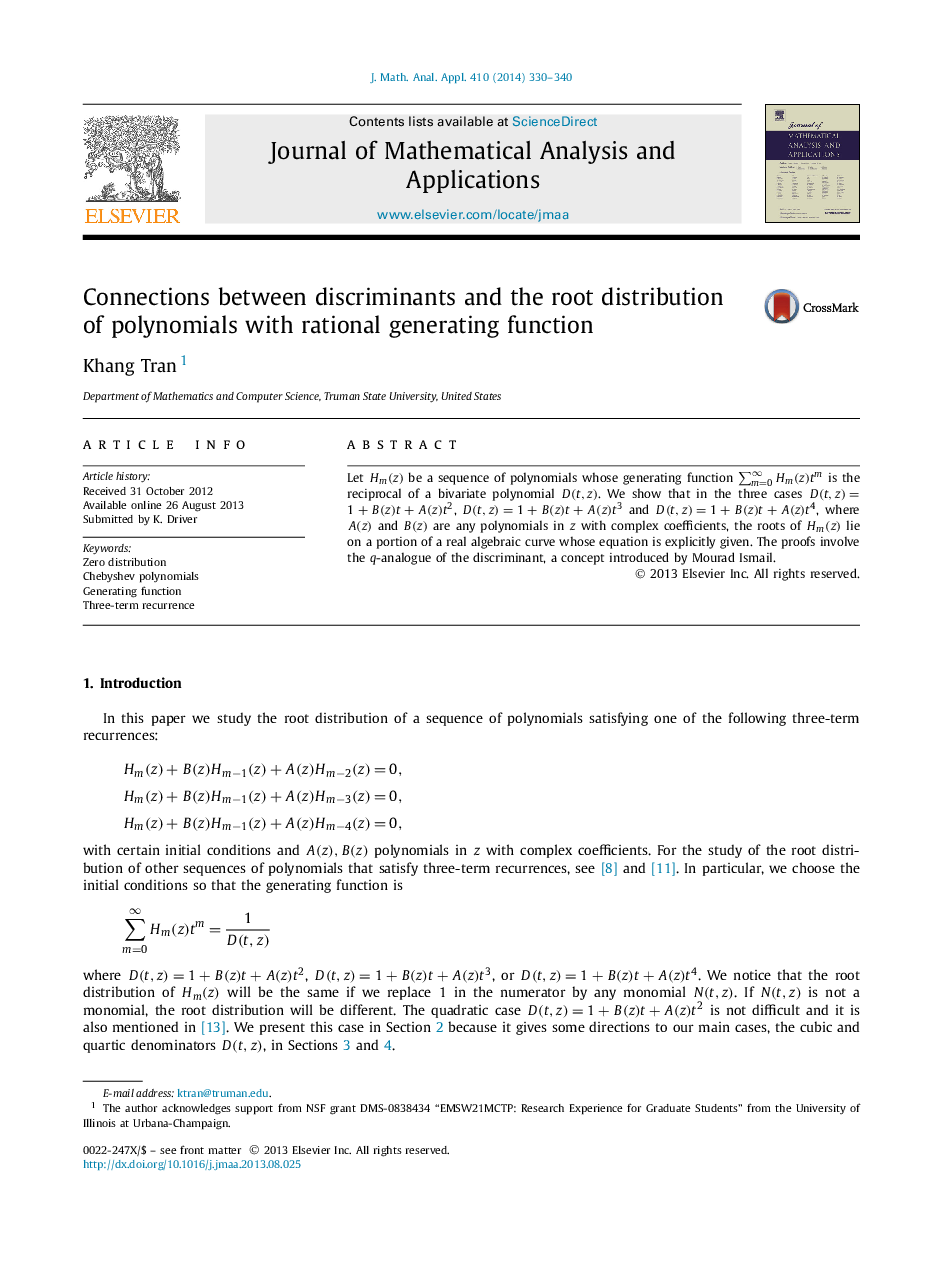| Article ID | Journal | Published Year | Pages | File Type |
|---|---|---|---|---|
| 6418770 | Journal of Mathematical Analysis and Applications | 2014 | 11 Pages |
Abstract
Let Hm(z) be a sequence of polynomials whose generating function âm=0âHm(z)tm is the reciprocal of a bivariate polynomial D(t,z). We show that in the three cases D(t,z)=1+B(z)t+A(z)t2, D(t,z)=1+B(z)t+A(z)t3 and D(t,z)=1+B(z)t+A(z)t4, where A(z) and B(z) are any polynomials in z with complex coefficients, the roots of Hm(z) lie on a portion of a real algebraic curve whose equation is explicitly given. The proofs involve the q-analogue of the discriminant, a concept introduced by Mourad Ismail.
Related Topics
Physical Sciences and Engineering
Mathematics
Analysis
Authors
Khang Tran,
